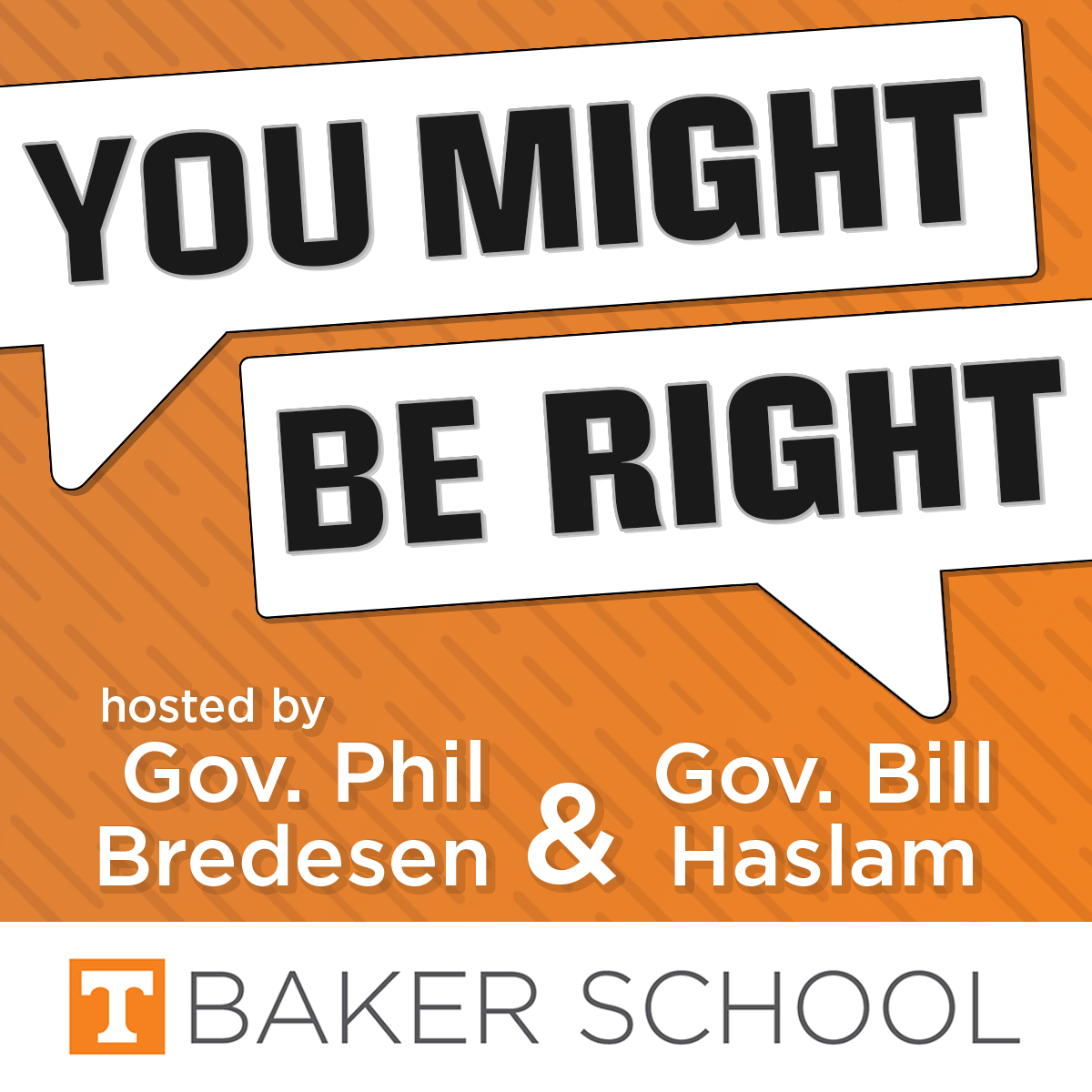Can We Still Count on the Separation of Powers?
The U.S. Constitution established three independent branches of government and a series of checks and balances to keep any one branch from becoming too powerful. In this episode, our hosts, former Tennessee Governors Phil Bredesen and Bill Haslam, and their guests, Cass Sunstein, a professor at Harvard Law School and former Administrator of the White House Office of Information and Regulatory Affairs, and David Lewis, a professor at Vanderbilt University, explore the intricate dance between the branches of government. Does the Framers’ vision of independence and equality hold up in current practice? And if not, what reforms are needed?
Subscribe and follow You Might be Right wherever you get your audio content – including Apple Podcasts and Spotify – to never miss an episode, or sign up for our email list to receive new episodes straight to your inbox each week here.
“They wanted to avoid tyranny, and they wanted to preserve liberty.”
Sunstein opened the conversation by offering a historical perspective on the Founders’ thinking when creating three independent branches of government. “They wanted to avoid tyranny, and they wanted to preserve liberty,” he explained. “If the powers are intermeshed and the executive has judicial power or the legislature has executive power, then the people are extremely vulnerable.”
Their vision has proven to be essential to our success as a country, Sunstein noted. “Our amazing experiment in our country, which is a shining light all over the world, if it owes anything to one idea above others, I think…separation of powers is the prize winner,” he said. “It’s the foundation for what has led to an extraordinary couple of centuries. Let’s hold onto that one.”
“It’s become difficult for Congress to check the President”
Executive power has expanded gradually over time and across party lines, Lewis observed.
“Republicans and Democrats that are presidents have had strong incentives to expand their power, partly because in elections folks say, ‘If you elect me, I’ll make your wildest dreams come true.’ And then you get into office, and in order to make people’s wildest dreams come true, you’ve got to kind of accumulate the power to try to make that happen,” Lewis explained.
“But the President’s ability to expand their own powers depends on the willingness of the other branches to relinquish it,” he added. “With Congress being divided and narrow majorities and things being so politically polarized, it’s become difficult for Congress to check the President… And the courts have neither the person nor the sword.”
“One of the most fundamental debates in not just constitutional law, but in our country”
Both guests addressed the legal theory known as the “unitary executive,” or the idea that Article II of the Constitution grants the president expansive executive powers and authority over everything that does not fall to the legislative or judicial branches.
“So, what that means is, I get to fire people if I want to. I have expansive authority over spending. Once Congress has appropriated money, I get to kind of control and withhold money that Congress has given,” Lewis explained.
Sunstein noted that “for many decades, the presidency has not been fully unitary,” pointing to Supreme Court decisions preserving the independence of the Federal Trade Commission and offering the civil service a degree of protection from politics. The Federal Communications Commission, Federal Reserve Board, and Nuclear Regulatory Commission are all other examples of groups where “some people who are implementing the law operate free from the President,” he said.
Whether those independent agencies are constitutional is “one of the most fundamental debates in not just constitutional law, but in our country,” he added.
Subscribe and follow You Might be Right wherever you get your audio content – including Apple Podcasts and Spotify – to never miss an episode, or sign up for our email list to receive new episodes straight to your inbox each week here.

Join the conversation on Twitter by following @UTBakerSchool, @PhilBredesen, and @BillHaslam.


